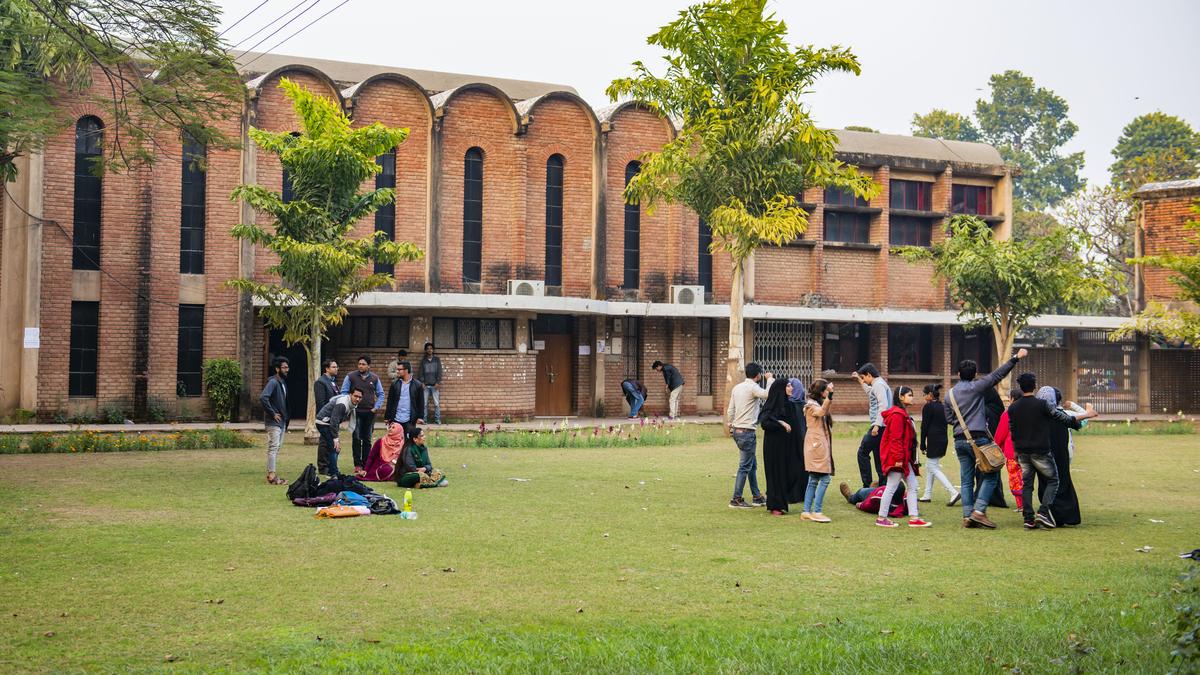
Liberal arts that enable technologist, physicians, and business leaders to understand and engage with the human contexts in which their work operates.
| Photo Credit: Getty Images
In today’s world, the relevance of liberal arts courses is being felt more profoundly than ever before. The complexities of life can’t be fully understood through the rigid binaries of right and wrong. Instead, we have to navigate through several grey areas that demand a contextualised understanding — one that is typically cultivated through liberal arts education. Apart from a few notable exceptions, unfortunately, liberal arts courses continue to receive stepmotherly treatment in most universities and colleges. They are being viewed as “non-utilitarian’’ and they remain undervalued and “disconnected” from STEM disciplines in the educational system which is driven largely by market values.
At this juncture, it is important to note that proponents of liberal arts often find themselves at odds with the education system that predominantly favours STEM disciplines due to the commercial value and returns these fields generate. As we know when education is subsumed into the circuit of demand and supply, the value that is attributed is counted in terms of financial returns. The talks about civilisational requirements, preservation of humanistic values and universal principles have “no purchase” in the global market. The parents tend to push their wards into the courses which in their opinion have “value return”. Now, the critical question is: how can we address this imbalance?
The most constructive way forward is not negating the relevance of STEM disciplines, but to add value to these courses through integrating liberal arts perspectives with STEM. It is a well-known fact that technology has reconfigured almost every facet of our lives. Yet, it is the liberal arts that enable technologist, physicians, and business leaders to understand and engage with the human contexts in which their work operates. For example, the scientists who are busy with developing AI tools are expected to understand the social, cultural and ethical contexts wherein these tools can be used. This dimension of sensibility that how different elements affect and influence one another is cultivated only through liberal arts education.
Similarly, a physician who interacts with a patient in order to diagnose the disease is expected to “understand” the patient and her context empathetically before starting the treatment. The human angle that a physician demonstrates brings value to the story that the patient is narrating. Similarly, a lawyer is expected to understand the context of the client before proceeding with the case. In a personal note, during my practice of law, I myself have handled a good number of cases wherein the couples hastily sought divorce. However, when given an opportunity to articulate their experiences in a space that valued empathy and contextual understanding — the principles derived from liberal arts training — many couples reconsidered and even reconciled. Such insights can’t be gleaned from technical or scientific knowledge alone.
Even in the corporate world, the top-tier administrators often come from a liberal arts background. Their education equips them with the critical thinking, emotional intelligence and contextual sensitivity necessary for effective decision making. There is significant potential for liberal arts graduates to collaborate with scientists and technologists in industry. Their contributions especially in understanding the ‘why’ behind the ‘what’ are invaluable in decoding consumer demand, improving communication and ensuring ethical innovation. A musical instrument might change thanks to the technological impact, but the music that it produces remains the same and that is the context of demand that musician should be aware of. Similarly, it is expected that academic leadership must begin to recognise the enduring value of liberal arts education and explore innovative strategies to integrate it into broader learning system. Only through such integration can we ensure that technological progress is not just efficient, but meaningful when anchored in human values and cultural awareness that liberal arts can uniquely provide.
Published – June 15, 2025 02:15 am IST
